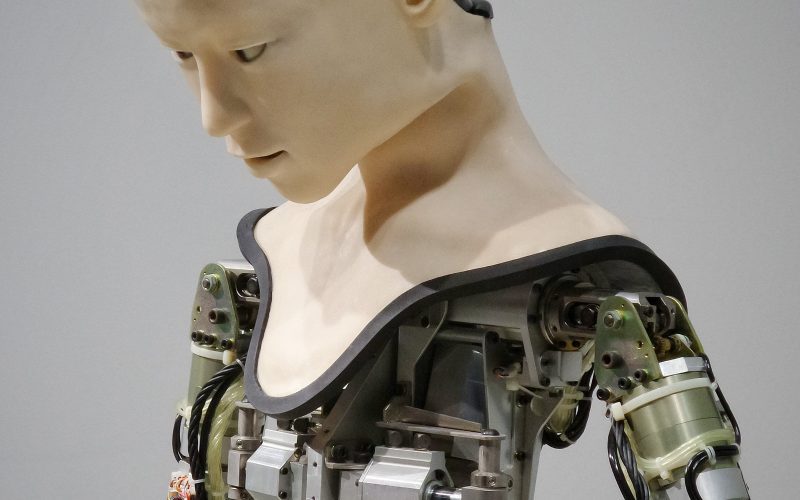Artificial Intelligence (AI) has been making waves in the healthcare industry for quite some time now. It is transforming the way doctors diagnose and treat patients, allowing them to make more accurate predictions about their conditions, and giving them access to vast amounts of medical data that they can use to make informed decisions. In this blog post, we will explore how machine learning algorithms are being used by doctors worldwide to enhance patient care, ultimately leading to better health outcomes. So buckle up and get ready to learn how AI is revolutionizing healthcare!
Machine Learning: What it is and how it works
Machine learning is a branch of artificial intelligence that allows computers to learn from data. The process of machine learning involves feeding a computer large batches of data, and then asking the computer to figure out certain rules or patterns in the data. Once the computer has figured out these rules, it can use this information to make predictions about future events.
One application of machine learning is in diagnosis. Doctors use it to look at large amounts of patient data to find patterns and correlations that they wouldn’t be able to see otherwise. For example, they may be looking for signs that a particular medication is causing inflammation in a patient’s tissues. Machine learning can also help doctors recognize when a patient is likely to experience an adverse reaction to a new medication.
The use of machine learning by doctors is still in its early stages, but there are already many benefits associated with it. It can help doctors save time and energy by finding patterns in patient data quickly. Additionally, it can help doctors identify potential problems before they cause serious damage or even death to patients.
How AI is being used in the medical field
The medical field is quickly adapting to the use of artificial intelligence (AI) in order to improve patient care. AI can be used for a variety of purposes, from helping doctors diagnose patients more accurately to assisting with doctor-patient interactions. In addition, AI is being used to help researchers learn more about diseases and find new ways to treat them.
One particularly important use of AI in the medical field is its ability to assist doctors with patient diagnoses. Doctors currently rely on a variety of factors, such as patient history and symptoms, to make an accurate diagnosis. However, this process can be time-consuming and often inaccurate. In fact, one study found that only 30% of cases are correctly diagnosed using traditional methods.
AI can help address this issue by automating the process of gathering information about patients. This information can include things like medical history and recent tests results. By automating this process, doctors can spend less time gathering information and more time evaluating it carefully. In addition, AI can also help identify potential red flags that may indicate a more serious condition.
Overall, AI has proven to be an extremely helpful tool in the medical field. It not only helps doctors make more accurate diagnoses but also aids in speeding up the process overall
The benefits of using AI in patient care
As technology advances, so too does the ability of machines to understand and process data. This technological advancement is being used not only in industries such as finance and manufacturing, but also in healthcare. One of the most important applications of AI in healthcare is its use in diagnosis.
The use of machine learning has helped doctors identify diseases and conditions more quickly and accurately than ever before. For example, IBM’s Watson platform was used to diagnose ovarian cancer with greater accuracy than a human doctor. Watson analyzed patient data from more than 10 million individuals who had been diagnosed with ovarian cancer, compared to the 80,000 patients used by the human doctors. Watson was also able to predict which patients were at high risk for developing ovarian cancer based on factors such as age, race, and family history.
This technology has also been used by doctors to improve patient care. For example, IBM’s x-ray machine can detect tumors more accurately than human doctors can. The machine recognizes objects in x-rays that a human wouldn’t see, such as bones or tissue inside a tumor. This technology is being used to screen patients for breast cancer before they have surgery and to help physicians diagnose other conditions, such as heart disease or pancreatic cancer.
In addition to using machine learning to diagnose illnesses, doctors are also using AI to help them prescribe medication correctly. For example, Microsoft’s Cortana software is being used by doctors to prescribe medications for hypertension and diabetes.
The challenges of AI in the medical field
There are many potential benefits to using artificial intelligence (AI) in the medical field, but there are also a number of challenges that need to be addressed. Some of these challenges include the ability to distinguish between medical information and mundane data; developing algorithms that can accurately identify medical conditions; and ensuring that AI-generated diagnoses are accurate and safe.
One way doctors are trying to address these challenges is by using machine learning. Machine learning is a type of AI that allows computers to learn from data sets and make predictions on their own. This approach has been used in a number of different applications, such as predicting customer behavior or fraud detection.
Another method being used is diagnosis reinforcement learning (DRL). In this approach, AI is trained on large datasets of patient data in order to develop models that can detect certain abnormalities. Once the models have been trained, they can be used to identify patients who may require additional care or treatment.
While there are still some significant challenges to overcome before AI can be fully adopted in the medical field, it appears to be on track for major advances over the next several years.
Conclusion
Artificial intelligence (AI) is being used by doctors all over the world to improve patient care. AI can help doctors diagnose diseases more quickly and accurately, as well as recommend treatments that are most likely to be effective. In addition, AI can help doctors make better decisions about which patients to treat and which ones to refer for further care. By using AI in this way, doctors are able to provide their patients with the best possible care.












